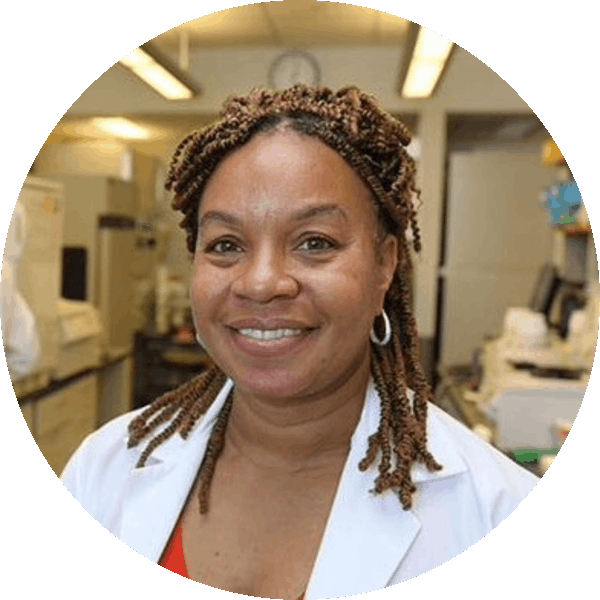From Bench to Capitol Hill: FASEB Advocates Bridging Research and Policy
From Bench to Boardroom to Capitol Hill
 For immunologist Cherié L. Butts, PhD, advocacy in support of biomedical research funding and policies is an essential element in her research mission and complements her lifetime of experiences as a researcher across academia, government, and industry.
For immunologist Cherié L. Butts, PhD, advocacy in support of biomedical research funding and policies is an essential element in her research mission and complements her lifetime of experiences as a researcher across academia, government, and industry.
“Scientists who don't live and breathe policymaking may not fully understand how it is impacting their work and lives,” said Butts, medical director in Biogen’s Research & Development group. “I believe it’s my responsibility to give people an insider's view of how and why policymaking and advocacy are so important to biomedical research.”
Before Biogen, Butts worked as a researcher and drug application reviewer at the U.S. Food and Drug Administration (FDA). She also conducted postdoctoral studies at the National Institutes of Health (NIH) after earning a doctorate from the University of Texas MD Anderson Cancer Center and bachelor’s and master’s degrees from The Johns Hopkins University.
With her wide-ranging experience, Butts has gathered a profound knowledge base on what motivates the different sectors—government (public health); industry (product development); and academia (scientific knowledge)—and how to deploy that awareness in her advocacy work at the local, state, and federal levels. She often speaks about how interconnected the three sectors are in the scientific enterprise, building on each other’s work and advancing biomedical research.
“It may seem like supporting researchers in academia is very separate from what happens in industry, but it's actually intricately connected,” said Butts. “I think that’s one difference when I go up to the Hill. I can speak to members of Congress about the connections because I’ve worked in all three sectors.”
Her perspective on biomedical policy and research is further influenced by her life experience. As a child, family and friends would comment on her inevitably being the only person who looked like her in the room. “It was drilled into me very early not to go into a room and sit in the back, not to leave a room without having asked at least one question,” said Butts. “You don’t want to miss the opportunity to leave a good impression.”
Butts said those early lessons contributed mightily to success in her professional career, and it has made her a role model and a luminary of sorts at scientific meetings, conferences, and in organizations. “As a person of color and woman who became a scientist, as someone who didn't go into academia, I've accumulated a vast array of different perspectives that I bring to scientific activities,” said Butts. “I am also asked to participate in different functions, policy and legislative-related, to represent the scientific community.”
Butts considers her early instruction as well when she speaks with junior investigators about participating in advocacy work with FASEB and other member societies. She explains how important it is to connect with the audience when lobbying government officials, and how young researchers must make the business case for funding and policy changes. “I tell them that most opportunities happen when you’re not in the room,” said Butts. “If no one remembers you in a good way, then you're not going to be chosen or nominated. You want them to pay attention and tell our best story.”
After years of advocacy work, Butts believes the scientific community should be more active in advocating for more and better funding for public and private research. “What I try to tell people is never assume the funding will always be there for you because there's no guarantee that the cycle will continue,” said Butts. “We must continuously work on this.”